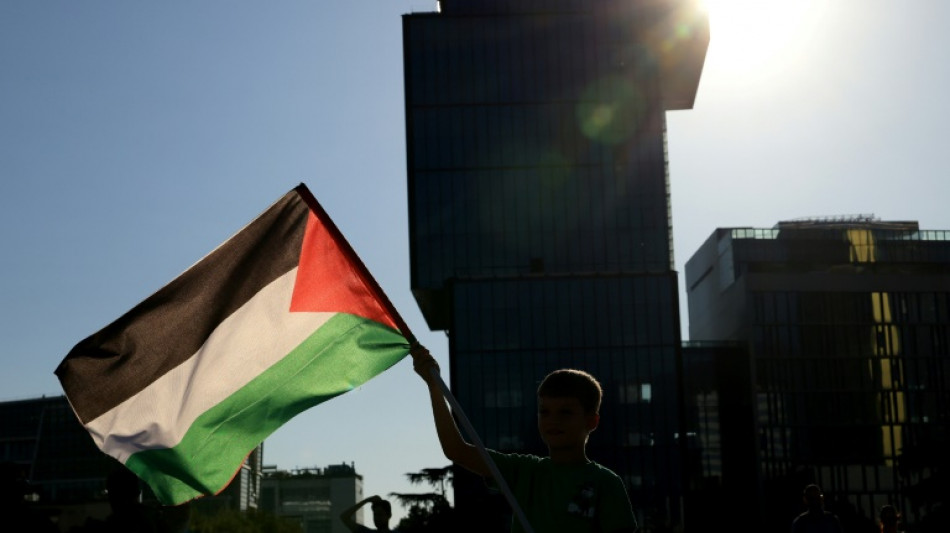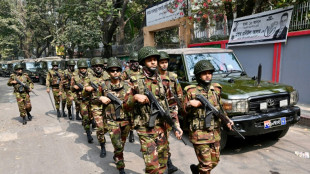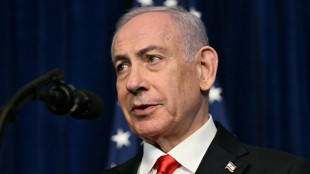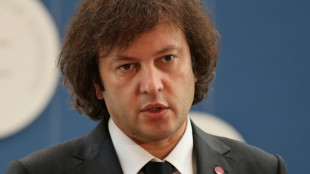

'No alternative' to two-state solution for Israel, Palestinians
France told a UN conference co-chaired with Saudi Arabia on Monday that there is "no alternative" to a two-state solution between Israel and the Palestinians.
"Only a political, two-state solution will help respond to the legitimate aspirations of Israelis and Palestinians to live in peace and security. There is no alternative," French Foreign Minister Jean-Noel Barrot said at the start of the three-day meeting.
Days before the conference, French President Emmanuel Macron announced that he would formally recognize a State of Palestine in September.
In an interview with French weekly La Tribune Dimanche, Barrot said that other European countries will confirm "their intention to recognize the State of Palestine" during the conference, without confirming which.
"All states have a responsibility to act now," said Palestinian prime minister Mohammad Mustafa at the start of the meeting, calling for an international force to deploy to help underwrite Palestinian statehood. "Recognize the state of Palestine without delay."
France is hoping that Britain will take this step. More than 200 British members of parliament on Friday voiced support for the idea, but Prime Minister Keir Starmer reiterated that recognition of a Palestinian state "must be part of a wider plan."
According to an AFP database, at least 142 of the 193 UN member states -- including France -- now recognize the Palestinian state proclaimed by the Palestinian leadership in exile in 1988.
In 1947, a resolution of the UN General Assembly decided on the partition of Palestine, then under a British mandate, into two independent states -- one Jewish and the other Arab. The following year, the state of Israel was proclaimed.
For several decades, the vast majority of UN member states have supported the idea of a two-state solution, Israelis and Palestinians living side-by-side.
But after more than 21 months of war in Gaza, the ongoing expansion of Israeli settlements in the West Bank, and Israeli officials declaring designs to annex occupied territory, it is feared a Palestinian state could be geographically impossible.
The current war in Gaza started following a deadly attack by Hamas on Israel, which responded with a large-scale military response that has claimed tens of thousands of Palestinian lives.
This week's conference comes at a moment when "the prospect of a Palestinian state has never been so threatened, or so necessary," Barrot said.
- Call for courage -
Beyond facilitating conditions for the recognition of a Palestinian state, the meeting will focus on three other issues -- reform of the Palestinian Authority, disarmament of Hamas and its exclusion from Palestinian public life, and normalization of relations with Israel by Arab states.
However, no new normalization deals are expected to be announced at the meeting, according to a French diplomatic source.
On the other hand, "for the first time, Arab countries will condemn Hamas and call for its disarmament," Barrot said.
The conference "offers a unique opportunity to transform international law and the international consensus into an achievable plan and to demonstrate resolve to end the occupation and conflict once and for all, for the benefit of all peoples," said Palestinian ambassador to the UN Riyad Mansour, calling for "courage" from participants.
Israel and the United States were not taking part in the meeting, amid growing international pressure to mount on Israel to end nearly two years of war in Gaza.
Despite "tactical pauses" in some military operations announced by Israel, the humanitarian catastrophe in the ravaged coastal territory is expected to dominate speeches by representatives of more than 100 countries as they take the podium.
Bruno Stagno, chief advocacy officer at Human Rights Watch, said "more platitudes about a two-state solution and peace process will do nothing to advance the conference's goals, nor to halt the extermination of Palestinians in Gaza."
Y.Callens--JdB



